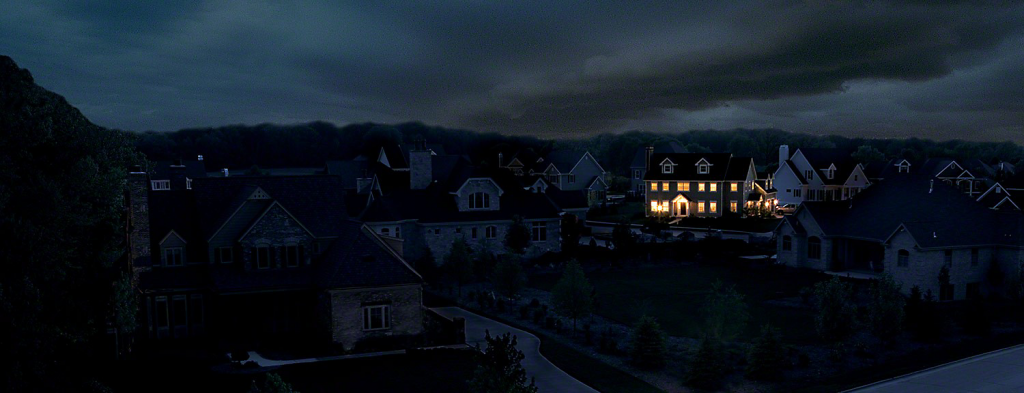Generator Purchasing Guide
So It’s Time to Buy a Generator
Imagine this. You are sitting at home when suddenly a power line is struck by lightning and all of your lights go out! Now, we have all experienced instances where we have been without power. Sometimes, it lasts for a few hours, and sometimes, it lasts much longer. Depending on your situation and experiences with power outages, you may be considering purchasing a generator. Generators are a wonderful solution to power outages, but before you hit that buy button, it’s important to do some research.
Whole-house vs. Portable
There are a few questions you need to ask yourself when considering what option is best.

Are you usually home when a power outage occurs?
If the answer is yes, a portable generator is a cheaper solution to emergency power. All you have to do is pour gasoline into the machine and plug it into the device that requires power. Just remember, you will need to go back outside to refill the gasoline every few hours. It typically takes 38 gallons to run an average sized portable for 2 days.

If the answer is no, a portable generator is not for you! If no one is home to operate the machine and make sure that no issues arise, a whole-house generator is the way to go. Whole-house generators do not require human operation to power on. As soon as your power goes out, it will kick on. This is ideal for families who leave during natural disasters like hurricanes or for people who travel often. A whole-house generator will ensure that your food stays fresh and that your house remains at an optimal temperature even when you are away.
What is your budget?
It is important to set a budget for your purchase before diving in. There can be a significant price range between your two options. Pricing for a portable generator typically ranges from $500-2,500 plus the cost of fuel, whereas the pricing for a whole house standby ranges from $5,000-14,000.
Another thing to consider when setting your budget is the cost of installation. Standby generators require permits, electrician work, and manual labor. This entire process averages two months. The cost of installation can easily add a few thousand dollars on top of the cost of the generator.
Lastly, consider your fuel source. In addition to installation, whole-house generators require a connection to natural gas or liquid propane. This can be done by installing a natural gas or liquid propane tank on your property or by connecting to city provided supplies. If you already have natural gas or liquid propane on your property, installation will be less expensive. $2,000-5,000 should be budgeted for fuel expenses if you do not have a fuel source already available.

Please note that a lot of buyers become frustrated when receiving a whole-home generator quote. Many major companies provide the price of a unit without mentioning the additional costs involved with installation. Altogether, the average cost of purchasing and installing a whole-home generator typically ranges between $8,500-17,500 depending on its size.
How much power do you need?
Think about your power needs. Are you looking to power essential items or your whole home? If you are looking to provide power to essential items like your refrigerator or work laptop, a portable generator is the cheapest option to achieve this goal. If you want to be able to run your air conditioner or heat your jacuzzi, consider a whole-house generator. Portables are great for the little things. They are an easy, cheap backup power solution if you are only powering a few items, but the average sized portable generator does not have the capacity to power your entire home.
How much risk are you willing to take?
With the use of any machine comes risk. Just like your car, generators release hazardous gasses. Since a portable can be placed anywhere, you have to keep a close eye on it. Never place a portable inside your home, as hazardous gasses and fires can cause significant harm to people and property. Always place a generator in a well-ventilated area outside of your house.
Whole-house generators are more controlled and are built with automatic shutoff switches with your safety in mind. Every county has their own rules on how and who can install one. There are distance requirements that dictate where they can be installed, and special permitting is always required. This aids in safe operation and reduces the risk of house fires or dangerous gasses from entering your living space.
Making a decision
Making a decision
Now that you have answered all of these questions, you should have a better idea of what kind of generator is going to work for your lifestyle and household. For more information on specific options or to set up a consultation for a whole-house generator, contact Complete Power Resources today. As an authorized Cummins, Kohler, Briggs & Stratton and Generac dealer, Complete Power Resources can recommend best fit options for your needs.
| Portable Generators | Standby Generators (Whole-House) |
| $500-2,500 (Avg) | $8,500-17,000 (Avg) |
| Can power a few essential items | Can power your whole house |
| Requires manual labor to turn on and use | Turns on automatically |
| Requires monitoring while in use | Automatic shutoff switch equipped and city regulations in place to increase safety. No monitoring required while in use |
| Fuel must be manually filled (38 gallons/ 2 days) | Connected to a LP/NG tank or fuel line |
(Servicing Florida residents and businesses from Jacksonville to Orlando: 866-330-4277)

